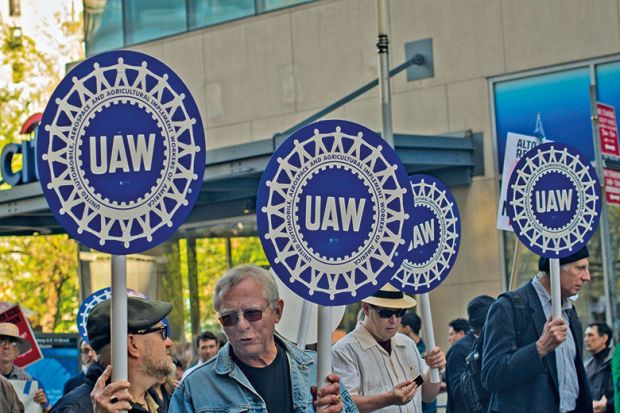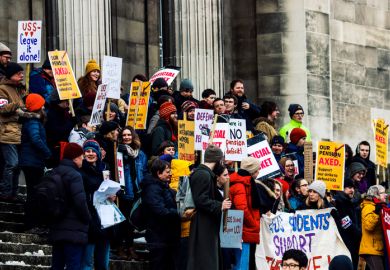Harvard University’s agreement that it will negotiate with a new trade union formed by postgraduates is likely to increase the pressure on other leading US institutions to follow suit.
Harvard said that it would formally recognise the union representing more than 5,000 research and teaching assistants, after postgraduates paid to teach classes on campus voted 1,931 to 1,523 in favour of affiliating with the United Auto Workers, which represents many US higher education staff.
The Harvard Graduate Student Union is now the largest union of academic workers at a private university in the US, where many institutions have resisted calls to recognise graduate student unions on the grounds that students are not employees.
In an email to staff and students on 2 May, Alan Garber, Harvard’s provost, wrote that “in light of the outcome of the vote…Harvard is prepared to begin good-faith negotiations” with the new union.
The newly recognised organisation was keen to make progress on a number of issues, including “sexual harassment and assault, improved conditions for international workers, predictable workloads, compensation and more”, said Justin Bloesch, a PhD candidate in economics, who praised Harvard for “doing the right thing and honoring the results of our majority vote in favour of a union”.
The decision by one of America’s top-ranked universities ends its long-held resistance to negotiate with the graduate union, which has been seen at other Ivy League institutions. They have argued that involving students in the workplace bargaining process would disrupt operations because negotiations could include such core matters as class length, the amount of grading, or what is included in the curriculum, The Washington Post reported.
Last month, Columbia University graduate students staged a walkout after more than a year of efforts to negotiate a contract with administrators, while petitions have also been launched by graduate students at Boston College, the University of Chicago and Yale University for formal recognition, the Post said.
In the UK, PhD students who engage in paid teaching are entitled to join the University and College Union and, since October 2017, have qualified for free membership for up to four years. They are still, however, classified as students, despite moves by some institutions to reconsider this status.
However, in many European countries, including Sweden, Norway, Denmark, Germany and the Netherlands, doctoral candidates are generally treated as employees rather than students, allowing them access to benefits such as holiday and sick pay.
“Unlike some universities that have chosen to delay bargaining with years of expensive and pointless litigation, Harvard is respecting the democratic and legal rights of its graduate workers,” said Julie Kushner, regional director of the United Auto Workers union.
“Harvard is taking the high road, and we look forward to engaging in a productive dialogue with them.”
POSTSCRIPT:
Print headline: In recognising postgraduate union, Harvard puts pressure on others
Register to continue
Why register?
- Registration is free and only takes a moment
- Once registered, you can read 3 articles a month
- Sign up for our newsletter
Subscribe
Or subscribe for unlimited access to:
- Unlimited access to news, views, insights & reviews
- Digital editions
- Digital access to THE’s university and college rankings analysis
Already registered or a current subscriber?








